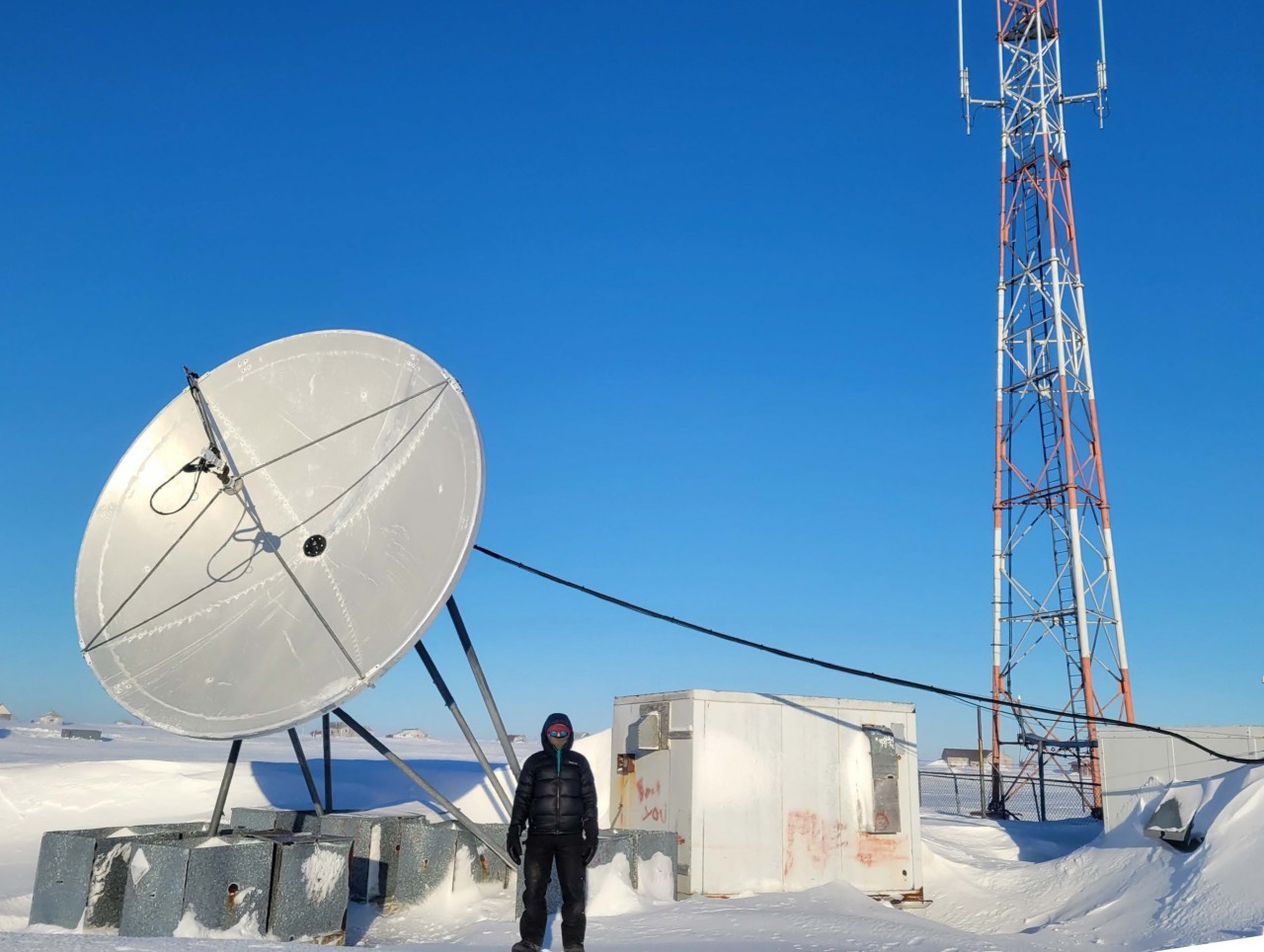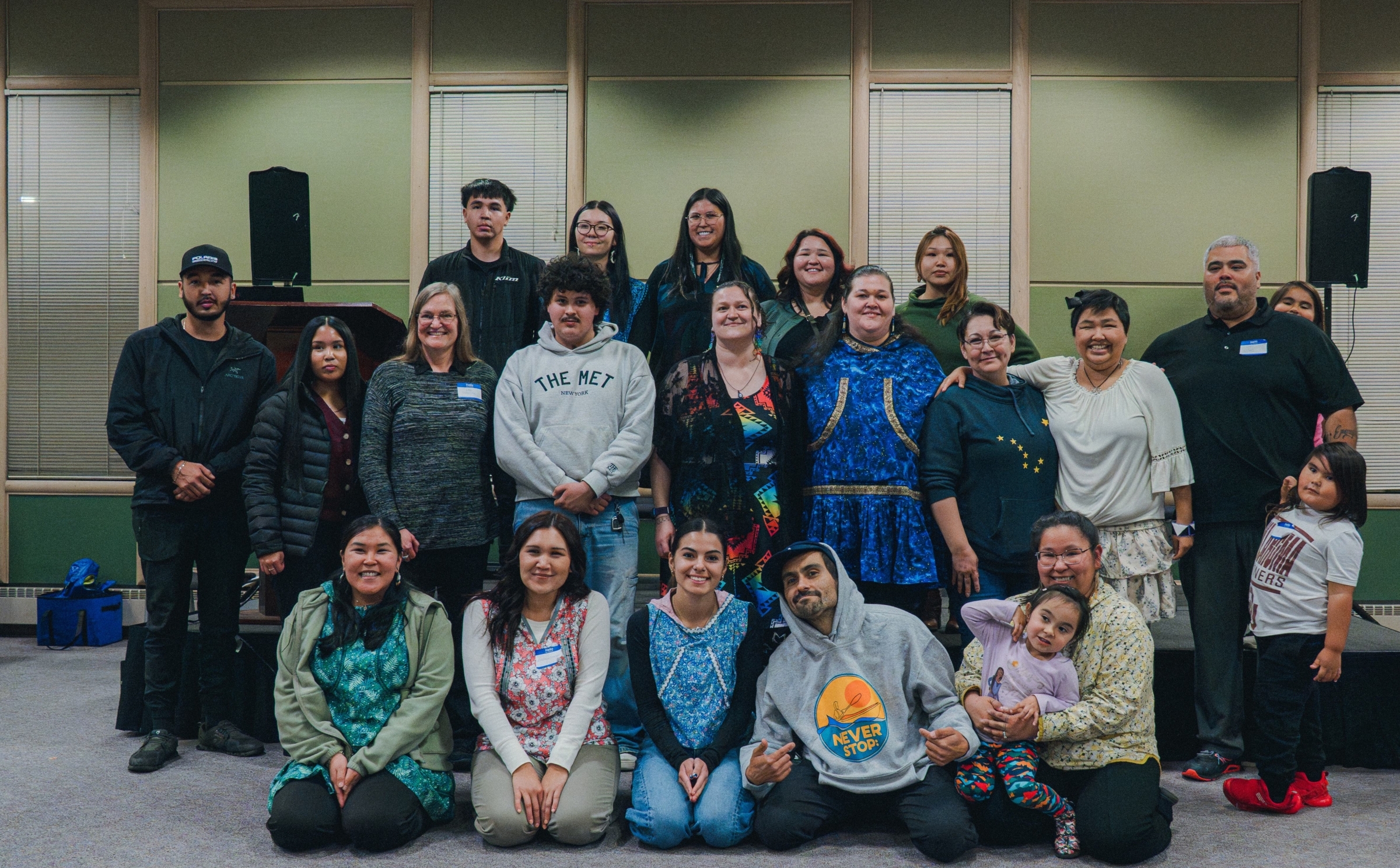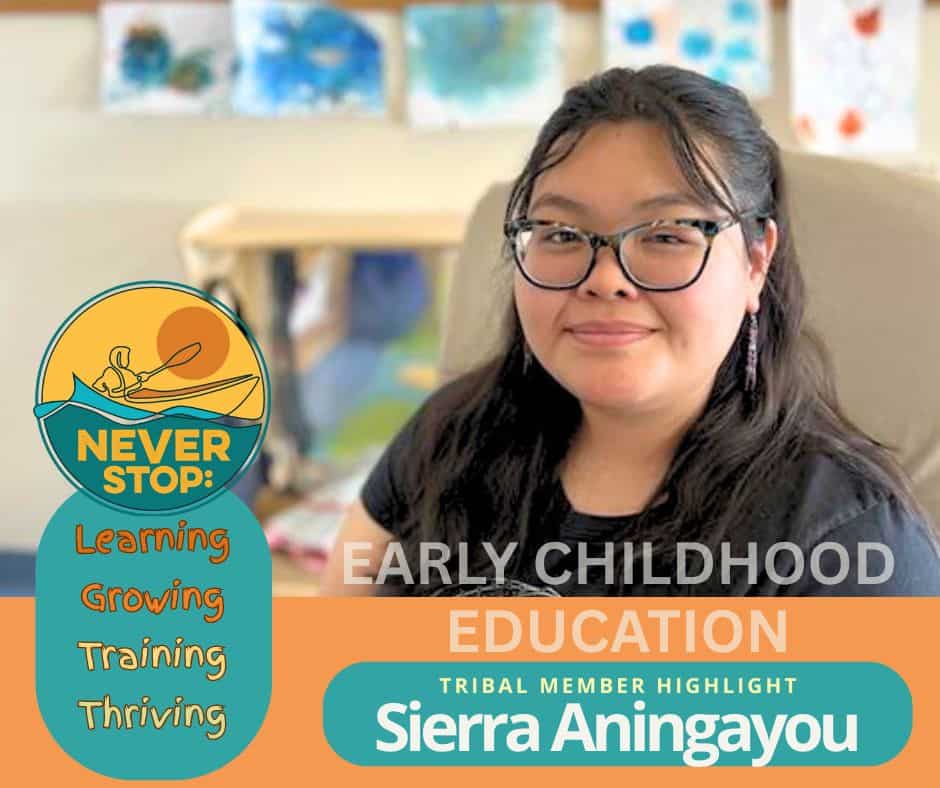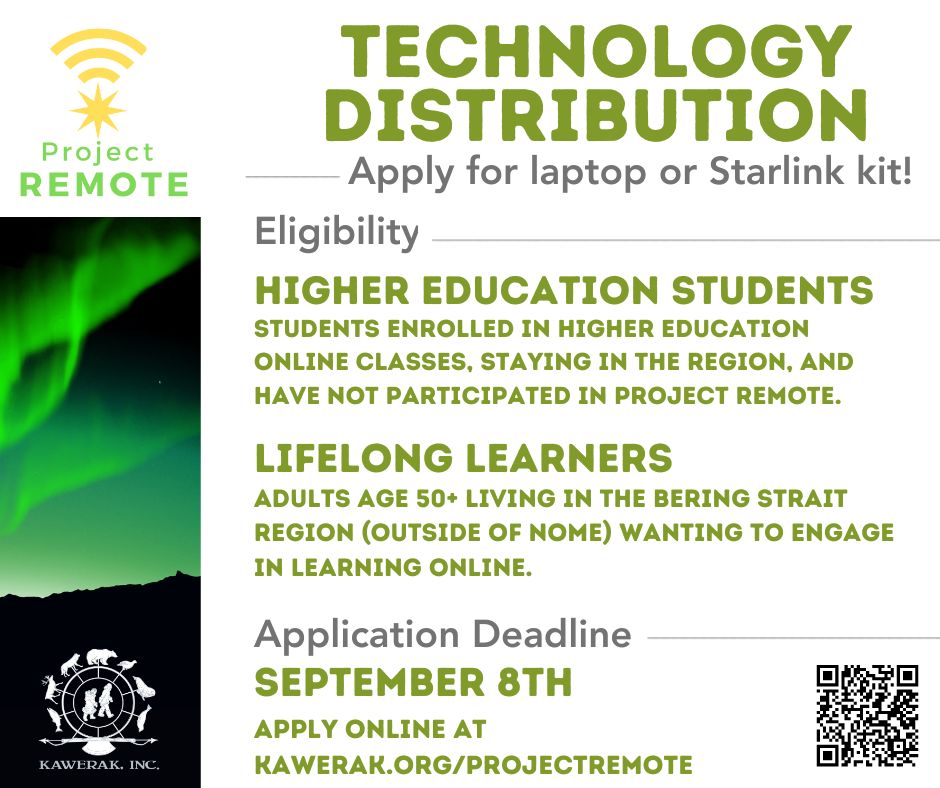By Caitlin Auktweenna Tozier, Project REMOTE Systems Specialist
Similar to urban communities, the COVID-19 pandemic effectively shut down in-person learning for the villages of the Bering Strait region. However, the barriers to education that surfaced with the shift to distance learning made clear the impossibilities of remote learning in rural Alaska.
With restricted travel, utilizing the internet to access classes became the only option. In urban areas, with connected homes, reliable internet at impressive speeds, and quiet spaces in a home to learn, the shift to virtual education was attainable and even easy. Those benefits that many have in the ‘lower 48’ and more urbanized areas did not reach the communities in the Bering Strait.
Project REMOTE surfaced in order to mitigate some of these challenges. In October 2021, Kawerak Inc.’s Education, Employment, and Support Services Division (EESS) was awarded a 3- year Alaska Native Education Program (ANEP) grant for a ‘Regional Educational Model for Online Technology Engagement Project’ (Project REMOTE). Each year, approximately $1.2M will support Alaska Native students residing in the Bering Strait region with the opportunity to pursue their educational goals in their home community without leaving their home, family, or subsistence lifestyles. Project REMOTE was launched in January 2022. The project sets up students wishing to further their education with a laptop, software, headphones, and internet. Students could be pursuing a college degree, their GED, training classes, or high school students taking dual credit classes.
These steps were able to make significant gains, but the project also surfaced more challenges when trying to ensure rural students had the same ability to access education as their urban counterparts. These issues are tied to deeper crises in our region such as housing, economic access, and monopoly business practices.
Not only is there a lack of homes in the region, but many are not properly wired by a certified electrician. They do not have ‘grounded’ outlets, and without surge protectors, students have experience surges and outages that killed their computers. Without local banks in communities and financial literacy, obtaining and owning debit cards can be out of reach for students, yet they are required to sign up for the internet. Solo service providers in communities require long contract lengths (2-year minimums) and expensive disconnect fees students with unpredictable incomes might suffer fees from $70 to $5000 if they cannot fulfill the contract. Also, internet providers are not based in the villages, so obtaining and installing equipment can prevent homes from successfully connecting. When those hurdles are overcome and a student successfully obtains access, even then they still have to deal with inadequate coverage as in some locations the download/upload speeds do not support access to websites until after 8 pm due to the location of the satellite.
With the additional barriers Project REMOTE staff and other Kawerak services are joining together to start tackling the issues. Kawerak and regional partners are uniting to identify solutions for housing issues. Rural internet infrastructure has gained forward momentum with partnerships between Kawerak and the Alaska Tribal Spectrum (ATS). ATS is a tribally managed non-profit working with OneWeb, a UK-based low earth-orbiting satellite company that has already launched satellites over the state of Alaska.
Kawerak is proud to announce Project REMOTE is currently supporting over 40 tribal members throughout the region. When staff travel to communities they spread the word about the program, assist with internet connections, sign up and set up, and set up laptops and software. Feedback from students thus far has been positive, the availability of affordable internet has allowed them to study more, access other resources, and stay up to date with news.
As barriers are removed and more and more students are connected, Kawerak strives to see more students gaining the necessary access to education in their home community.





